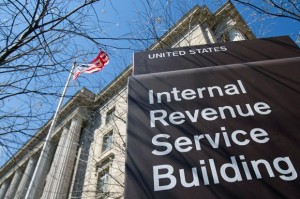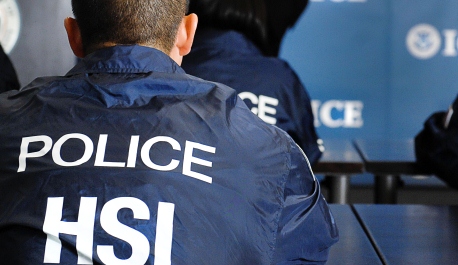
A Florida husband and wife, Noel and Kelsy Hernandez Quintana, plead guilty Thursday to conspiring to import plywood products that were illegally imported and sold, federal officials stated
Noel Quintana also pleaded guilty to one count of smuggling and one count of violation of the Lacey Act.
Kelsy Quintana also pleaded guilty to two counts of violating the Lacey Act.
The total loss of duties owed on the illegally imported wood products was approximately $42 million. The plywood’s market value was between $25 million and $65 million.
According to court filings, the Quintanas incorporated seven companies in the United States – naming relatives or friends as corporate officers and agents – and these shell companies imported hundreds of shipments of plywood products into the United States between February 2016 and December 2020.
The Quintanas also incorporated a financial shell company through which they accepted payments from purchasers for the plywood they imported in violation of laws, including the Lacey Act and customs laws.
Before April 2017, Quintana’s shell companies imported plywood containers into the United States and almost exclusively declared them hardwood plywood imported from China.
However, after April 2017, the companies evaded applicable duties by falsely declaring their hardwood plywood imports from China to be either the product of another country or to be made with a species of wood not subject to duties.
 “Homeland Security Investigations (HSI) is committed to pursuing individuals or entities that attempt to defraud the government of millions of dollars, violate U.S. customs laws and keep a fair marketplace for businesses,” said Special Agent in Charge Anthony Salisbury of the HSI Miami Field Office. “These types of criminal activities only serve to negatively impact the U.S. economy and we will continue to work with our federal law enforcement partners to combat this illicit activity.”
“Homeland Security Investigations (HSI) is committed to pursuing individuals or entities that attempt to defraud the government of millions of dollars, violate U.S. customs laws and keep a fair marketplace for businesses,” said Special Agent in Charge Anthony Salisbury of the HSI Miami Field Office. “These types of criminal activities only serve to negatively impact the U.S. economy and we will continue to work with our federal law enforcement partners to combat this illicit activity.”
When importing plant products, the Lacey Act requires filing a declaration that contains, among other things, the plant’s scientific name and its country of origin.
Under the Lacey Act, it is unlawful to transport or sell a plant product knowing it or the plant it was made from was transported in violation of any plant-related law.
 Customs laws prohibit false statements in any import declaration without reasonable cause to believe the truth of such statement. It is also illegal to import merchandise contrary to law, including the Lacey Act.
Customs laws prohibit false statements in any import declaration without reasonable cause to believe the truth of such statement. It is also illegal to import merchandise contrary to law, including the Lacey Act.
According to the plea agreement, softwood plywood – regardless of country of export – carried a general duty of 8%, with a few duty-free exceptions, such as if the outer ply was made from Parana pine. Antidumping and countervailing duties of more than 200% applied to hardwood plywood manufactured in China after approximately April 2017.
Quintana’s shell companies falsified import declarations for hardwood and softwood plywood to avoid paying duties.
For example, a declaration from July 2018 said plywood in three containers was manufactured in Russia. But the containers were manufactured and loaded in Qingdao, China, and transported to Port Everglades, Florida, through the Panama Canal, without ever stopping in Russia.
After federal authorities stopped such a shipment through Panama, the Quintanas used a different tactic to evade duties by shipping Chinese-produced hardwood plywood to Malaysia and then transferring the wood to new containers to be shipped onward to the United States.
This container change was intended to conceal better that the plywood originated from China.
The Quintanas also falsely declared some shipments of softwood plywood to be duty-free Parana pine, which allowed them to evade the 8% general duty on these imports.
Additional court filings reflect that, after being alerted to the possibility of prosecution for their illegal acts, the Quintanas fled the United States initially to Panama and then to Montenegro, where they were the subject of extradition proceedings.
The couple pleaded guilty to conspiring to import plywood, violating the Lacey Act and customs laws, and conspiring to sell the illegally imported plywood.
Noel Quintana also pleaded guilty to one count of smuggling and one count of importing plant products without filing a declaration, including the scientific name and name of the country from which the plants were taken.
Kelsy Quintana also pleaded guilty to two counts of importing plant products without filing a declaration, including the scientific name and name of the country where the plant was harvested.
 Noel Quintana faces a maximum penalty of 20 years in prison and a $250,000 fine for count three as well as five years in prison and a $250,000 fine for each of counts one and six. Kelsy Quintana faces a maximum penalty of five years in prison and a $250,000 fine for each of counts one, five and six. Both face forfeitures up to $42 million. Sentencing is scheduled for Jan. 12, 2024.
Noel Quintana faces a maximum penalty of 20 years in prison and a $250,000 fine for count three as well as five years in prison and a $250,000 fine for each of counts one and six. Kelsy Quintana faces a maximum penalty of five years in prison and a $250,000 fine for each of counts one, five and six. Both face forfeitures up to $42 million. Sentencing is scheduled for Jan. 12, 2024.
HSI investigated the case, with support from Customs and Border Protection, U.S. Fish and Wildlife Service, and the Animal and Plant Health Investigation Service.
Attorneys from the Environment and Natural Resources Division’s Environmental Crimes Section and the U.S. Attorney’s Office for the Southern District of Florida prosecuted the case.

